In a discussion with Washington Post columnist David Ignatius at the 12th annual Saban Forum, Israeli Defense Minister Moshe Ya’alon urged the Obama administration to play a more active role in coordinating Sunni opposition to the Islamic State. He also warned of the dangers posed by a resurgent Iran, enriched and empowered by the July 2015 comprehensive nuclear accord.
Ya’alon’s appeal for U.S. leadership was expressed repeatedly and in compelling terms. “We believe that the United States can’t sit on the fence,” Ya’alon said. “If you sit on the fence, the vacuum is filled—in Syria, as an example, whether by Iran or the ‘Shia axis’ supported now by Russia or by Da’esh, by ISIS…That’s why we claim that the United States should play a more active role in our region.” He added: “and there is an opportunity…we have the Sunni Arab camp, the most significant camp in the region, looking for leadership.”
Ya’alon also described a second regional alignment oriented around the Muslim Brotherhood, led by Turkey and Qatar. And he devoted much of the substance of his remarks to what he characterized as the Sunni camp, emphasizing the converging interests between Israel and a number of Arab states, including Egypt, Jordan, Saudi Arabia, Kuwait, Bahrain, the United Arab Emirates, and Morocco.
Ya’alon commented that ISIS “is not just a group of terrorists. This is an idea, how to have a Sunni caliphate as soon as possible…Instant caliphate—quite a modern way of thinking about having everything now.” He contended: “we have to fight Da’esh everywhere, especially in the Islamic State, in Syria, in Iraq. But we have to look around especially in the Islamic world, trying to find the hearts and minds. It’s easy to say. It’s so difficult to do it.”
The defense minister said that expanding the role of American or Western ground forces in the anti-ISIS campaign “should be the last resort. It is better off to empower, to support, to finance, to arm local troops to fight for their cause…we know many elements who are ready to fight for their lives—not for Western interests, for their interests. They should have been supported from the very beginning. But it is not a lost cause. There is still a chance.”
“In order to avoid what is called here ‘boots on the ground,’ Western boots on the ground…and you can’t defeat Da’esh without boots on the ground, let’s empower the local boots on the ground, namely the Sunnis, also the Kurds. There might be other elements in Syria that are looking for something different, and they don’t want neither Iran, with Bashar Al Assad’s regime, nor Da’esh. This is the opportunity and this camp should be orchestrated and led in order to make it [operate] in a better way.”
You can’t defeat Da’esh without boots on the ground, let’s empower the local boots on the ground.
Iran is still committed to becoming a military nuclear power
Throughout the discussion, Ya’alon resisted queries to rank order his assessment of the greatest threat facing the region, repeatedly underscoring that Israel and its neighbors should not have to face a binary choice between a hegemonic Iran or an unleashed ISIS. However, he displayed a greater confidence about the campaign against ISIS, as compared to the effort against Iran, commenting that “we believe, in the end, Da’esh is going to be defeated. Iran is very different. It’s actually an original super power.”
And he was unambiguous in his criticisms of Iran—“this messianic, apocalyptic regime”—and the comprehensive nuclear deal finalized earlier this year. Ya’alon reiterated that the Israeli government continues to view the deal as “an historic mistake.” The defense minister insisted that the deal will not derail Iran’s nuclear ambitions, stating that “this is the nature of this regime. They are still committed to the idea to become a military nuclear power. They haven’t given up.” Interestingly, though, he predicted that Tehran would in fact comply with the terms of the deal, adding: “Why? Because they need the money.”
Ya’alon advised that preventing a nuclear Iran must remain the centerpiece of regional nonproliferation efforts, and in an oblique reference to Israel’s undeclared nuclear arsenal, he noted “that someone else has the nuclear culpabilities…wasn’t an excuse to any party in the region to try to acquire this capability… But they can’t tolerate a nuclear Iran.” He admonished that the Iran deal has already begun to fuel a nuclear arms race in the region, as well as a conventional arms race: “$200 billion procurement of arms by the Sunni regimes. We are now on the same page, but who knows what it will be in the future?
However, the core of Ya’alon’s concerns about Iran in the aftermath of the nuclear deal focused on the fact that Tehran is now significantly less constrained by international censure or by economic restrictions. “I am afraid that with more money now, without political isolation…without external pressure, this regime is going to enjoy more room to maneuver, even internally, and I don’t see any change in the vision, the ideology of Iran…It’s not going to be changed. And I don’t see the chance to have McDonald’s branches in Tehran as the new future. We might pray for a change, but I’m not sure this is a policy—to pray.”
We might pray for a change, but I’m not sure this is a policy—to pray.
Ya’alon deplored what he described as Iranian transfers of weapons to Hezbollah and other groups around the region “on a daily basis,” noting that these shipments violated United Nations Security Council resolutions that are not enforced for fear of scuttling the nuclear deal.
In response to a question by former senior Obama administration official Dennis Ross, the defense minister agreed that the world should “take advantage of the delay” in Iran’s nuclear program. He added that “there are also claims that taking advantage of these 15 years or so is looking or generating an internal change in Iran. We thought about it, even in the ’90s. I was the head of the intelligence, talking about the fact that 70 percent of the Iranians are not happy with the ayatollah.” Ya’alon expressed regret that in the intervening years, the Islamic Republic “has succeeded in strengthening the grip in governing,” adding that he saw the regime as even more consolidated in the aftermath of the nuclear deal.
Despite the differences on Iran between the United States and Israel, Ya’alon emphasized that “the relationship between our two defense establishments are superb. Superb, not less than that, between the Pentagon, the Minister of Defense, the two armed forces, the intelligence agencies.” He noted that President Obama has directed that the memorandum of understanding that will guide the U.S.-Israel relationship for the next decade be completed within the next two months.
The relationship between our two defense establishments are superb.
Syria: We can’t see the end of this tragedy
Asked about Secretary of State John Kerry’s diplomatic efforts on Syria, having expanded to include Iran, Ya’alon sounded profoundly skeptical. He described Israel as resigned to the likelihood that “Syria is going to suffer from chronic instability for a very, very long period of time. We can’t see the end of this tragedy.”
The defense minister forecast the indefinite balkanization of Syria on ethno-religious lines, noting that “you can make omelets from an egg, you cannot make eggs from an omelet.” He suggested that “the only good option that might come out of this situation” would be that “hopefully the Sunnis will be able to get rid of Da’esh by being empowered by the West.”
The root of the problem is Palestinian unwillingness for reconciliation
Ya’alon also spoke at length about the Palestinian conflict. He expressed an underlying confidence that the current spike in violence can be addressed successfully, noting that “It’s a long process…but we had, in the past, more devastating attacks, more significant threats, and I believe that even this wave of terror is going to be defeated by us.”
However, Ya’alon was far less sanguine on the challenges to a comprehensive resolution of the conflict with the Palestinians, asserting that while he supported the original Oslo peace process, he does not believe that there has been an underlying commitment from the Palestinian leadership from the outset. “I would say that we haven’t witnessed yet, since the dawn of Zionism, Palestinian leadership which was ready to recognize our right to exist as a nation state of the Jewish people. And this is the root of the problem.”
Our interest is to improve, to enhance, to strengthen their competence to govern themselves. We want them as a reliable, accountable neighbor.
He insisted that Israel prefers not to govern the Palestinians; “our interest is to improve, to enhance, to strengthen their competence to govern themselves. We want them as a reliable, accountable neighbor.” For this reason, he said “we shouldn’t be in a hurry” to try to achieve a comprehensive settlement of the conflict. “We call it the bottom up approach. Let’s make progress on the economy, security, as well as on the political track.” He emphasized that, in his view, “this is the only way to keep a relatively stabilized situation between us and the Palestinians.”
The Brookings Institution is committed to quality, independence, and impact.
We are supported by a diverse array of funders. In line with our values and policies, each Brookings publication represents the sole views of its author(s).

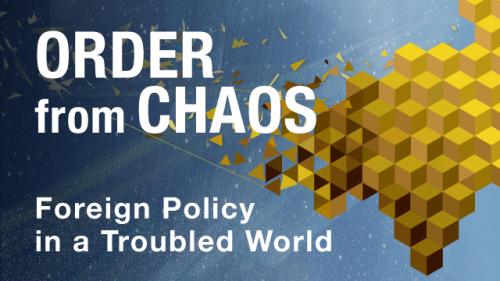
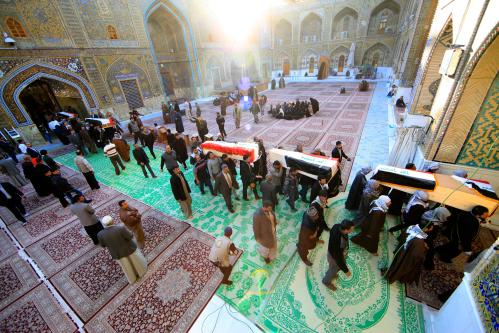
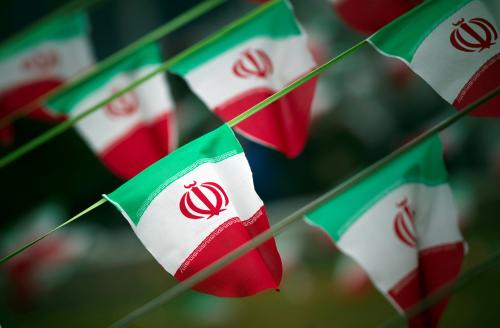
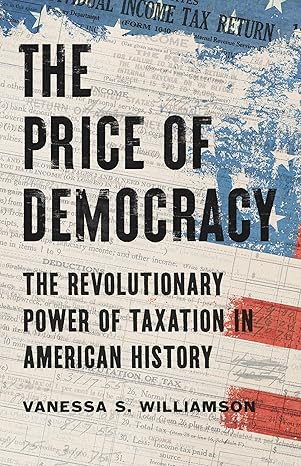

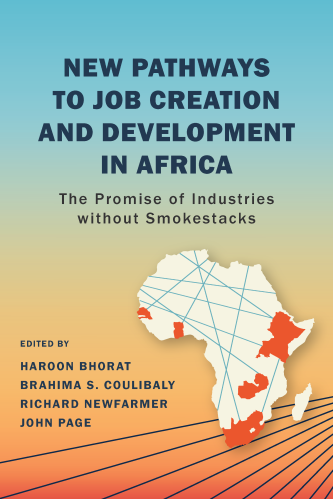




Commentary
Israeli Defense Minister Ya’alon urges U.S. leadership on ISIS and warns of a resurgent Iran
December 4, 2015